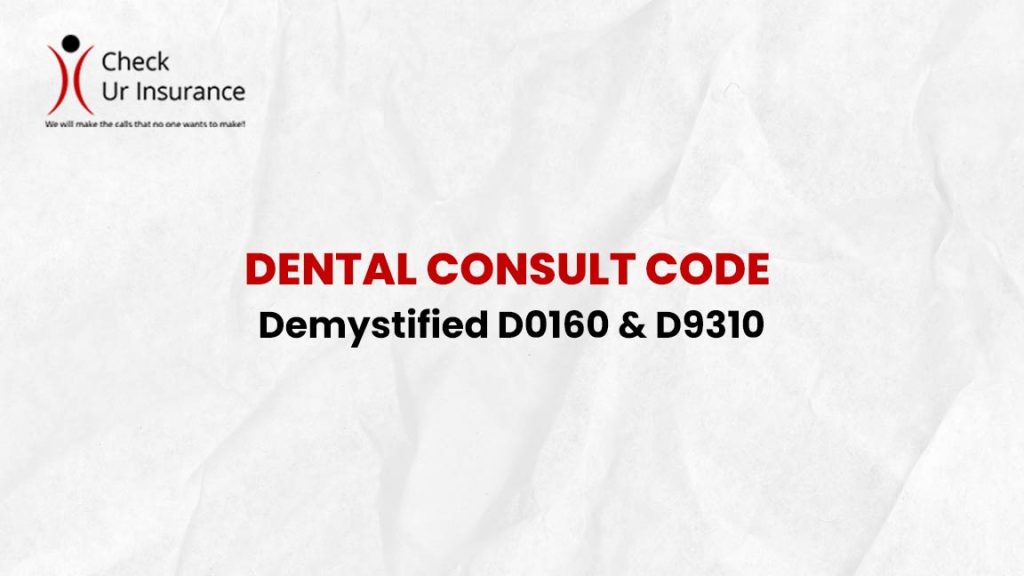Dental Consult Code Demystified | D0160 & D9310
Understanding dental consultations is pivotal for optimal oral health management. This article sheds light on two essential Dental Consult Codes, D0160 and D9310, unraveling their unique roles in the dental landscape.

Table of Contents
Decoding D0160: The Specialized Dental Code
Purpose of D0160 Code
D0160 is a specialized dental code designed for situations where a patient is referred by a medical or dental professional. This code is exclusive to cases where a formal referral is present, emphasizing collaboration among practitioners.
When to Report D0160
Report D0160 only when a dentist provides an opinion or advice for a patient specifically referred by a physician, dentist, or other appropriate source. A formal referral is essential to validate the use of code D0160.
Understanding D9310: The Dental Consult Code
Defining D9310
D9310 represents a broader dental consultation, involving a patient encounter where a practitioner provides an opinion or advice requested by another practitioner. This dental consult code encompasses an oral evaluation, with the consulted practitioner authorized to initiate diagnostic and therapeutic services.
Eligibility Criteria for D9310
For a dental provider to report D9310, they must be enrolled in a dental specialty recognized by the NYS Medicaid Program. Additionally, the referring practitioner cannot belong to the same group as the consulting provider, ensuring an unbiased and expert opinion.
Documentation Requirements for D9310
The thoroughness of dental consultations is reflected in the documentation requirements. The patient’s permanent record must contain a copy of the written request from the referring provider. Equally essential is a copy of the written evaluation provided to the referring practitioner, detailing findings and recommendations.
Why Both Codes Matter: FAQs
How do D0160 and D9310 differ?
D0160 focuses on opinions or advice provided for patients specifically referred by another practitioner, while D9310 involves a broader patient encounter initiated by a practitioner seeking opinion or advice.
Can any dental practitioner use D9310?
D9310 is reserved for dental practitioners enrolled in recognized specialty areas by the NYS Medicaid Program, ensuring expertise in the consultation process.
What happens if the referring practitioner is from the same group?
In such cases, D9310 cannot be reported, maintaining the integrity of an unbiased consultation.
Are there specific details that must be included in the written evaluation for D9310?
The written evaluation must encompass findings and recommendations, providing a comprehensive overview of the consultation.
How crucial is collaboration in dental consultations for D0160?
Collaboration is fundamental, as D0160 is only applicable when a formal referral from another practitioner is present.
What role does a formal referral play in using D0160?
A formal referral is a prerequisite for reporting D0160, emphasizing the importance of a structured collaboration among healthcare professionals.
Conclusion
Both D0160 and D9310 codes play crucial roles in dental consultations, highlighting the importance of collaboration and expertise in oral healthcare. Understanding the distinctions and requirements for each code empowers practitioners and patients alike in navigating the dental landscape effectively.
Did you like this article? Read more helpful latest blogs.
